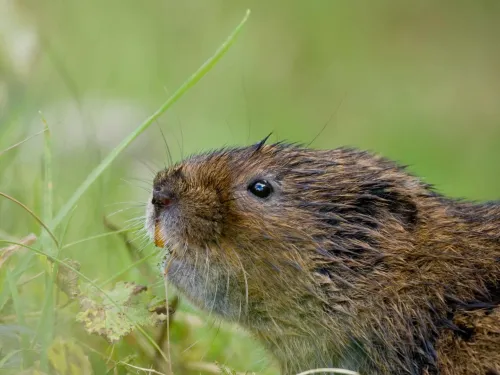
What are chalk streams?
Chalk streams are an ecologically significant freshwater habitat and are globally rare. England holds approximately 85% of the global total with the majority of those dotted around the south, including in Kent.
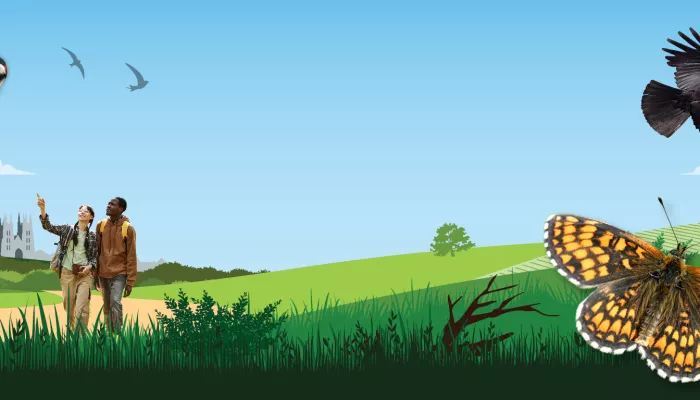
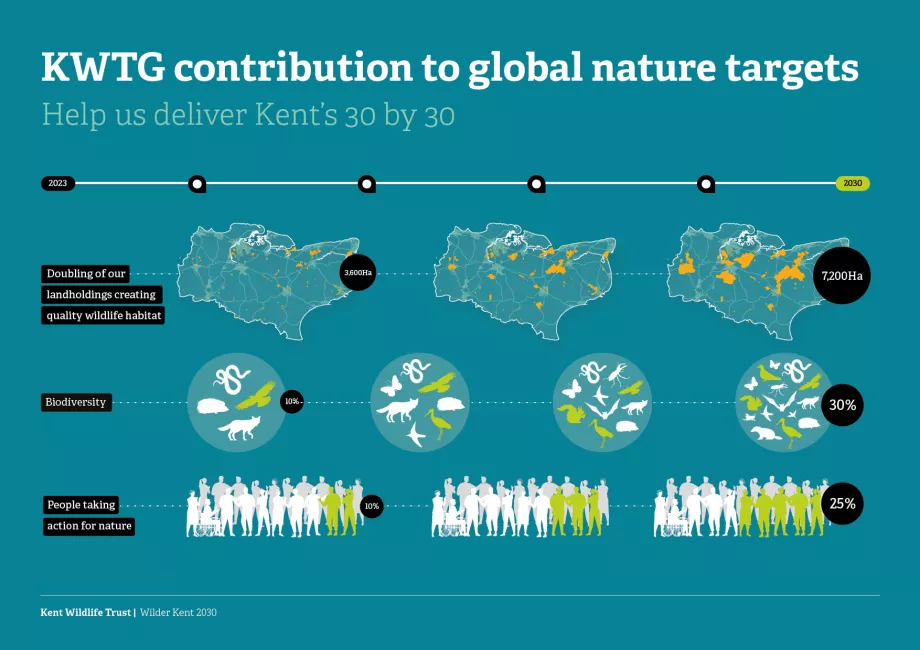
Kent Wildlife Trust's Contribution to Global Nature Targets. Doubling our landholdings creating quality wildlife habitat. Increasing biodiversity. Inspiring people to take action for nature. © Katy McCarten
It is the way that Kent Wildlife Trust, and the conservation sector in the UK as a whole, demonstrate that nature is not a “nice to have” but an essential life support system, and must be valued – and invested in – as such by all who make use of it: government, private companies, community groups, and individuals.
Unfortunately, low ambition for nature still dominates the political agenda across the UK. There is still a disconnect between the lip service paid to nature protection and restoration at a shockingly high level in some government departments as compared to – for example – local housing targets or infrastructure projects which are clearly still seen as over-riding conservation or climate targets.
But, Kent Wildlife Trust is fortunate. We can show rather than tell. We can demonstrate what can be achieved, even with these political constraints. We can show what is possible if these constraints are eased. This is what Wilder Blean is all about, with bison and other species coming soon as its flagships.
We can start to deliver locally on the level of ambition required to maintain a safe living space for humanity globally. We can go beyond what is currently being mandated. We can lead the change that we want to see others take, paving the way for others to catch up.
How? By working with like-minded people and organisations. By taking calculated risks in the name of the societal benefits we know will result from having a Wilder Kent as part of a wilder world.
Although we have achieved a lot since the beginning of the decade we need to do a lot more a lot faster in the next 7 years. And we need to get others to follow suit.
This means changing the way that we do conservation, and recognising that despite our best efforts (and many successes), the way we’ve been doing things for decades hasn’t stopped the catastrophic decline of nature that now threatens to result in ecosystem collapse.
It means embracing dynamism: recognising that – with climate change upon us – we can’t continue to try and micro-manage the natural world in the way that traditional conservation has tried to do. We can’t manage for a specific habitat or suite of species because those habitats and species are shifting and changing as the UK warms. Dynamism and natural processes restored through wilding has to be mainstreamed throughout our work to increase climate resilience and adaptation.
It means taking action and innovating. It means managing more land for nature, directly, and with others, and it means using (and helping to craft) the nature-based payment mechanisms that will bring private sector finance to bear quicker and at a larger scale than government is capable of to pay for this.
It means ensuring that Biodiversity Net Gain; Carbon Offsetting; and water quality (Nutrient Neutrality) schemes – as well as other emerging nature market mechanisms – are delivered in a way that results in real, long-term gains for nature. It means helping to design the right nature-based solutions like we have been doing with Wilder Carbon.
This is KWTs operating model at the heart of Wilder Kent 2030.
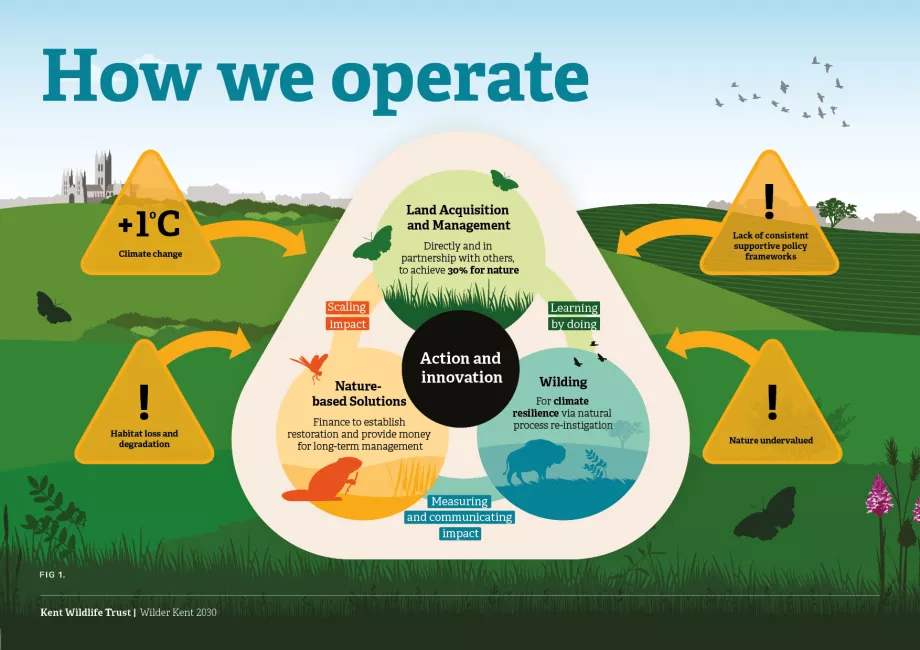
How Kent Wildlife Trust Operate image. © Katy McCarten
It won’t be easy. It requires cultural change within our own sector as well as working with other sectors that are also struggling to work out what to do even if they recognise the challenges that are now upon us. But it is also exciting and presents huge opportunities to have much greater impact than we have ever had before.
And, it is possible. Because, suddenly, it’s not just us that are saying “nature is important”. It’s increasing numbers of farmers, businesses, councils, and the public at large. Of course, not everyone is with us but a lot of people are there to be convinced if we make the right arguments. If we can demonstrate success.
We can use our operating model to bring people with us. Because restoring nature will benefit them, the economy, and future generations directly. And in demonstrating what’s possible and bringing people with us we can scale our impact in the face of the intertwined nature and climate emergency.
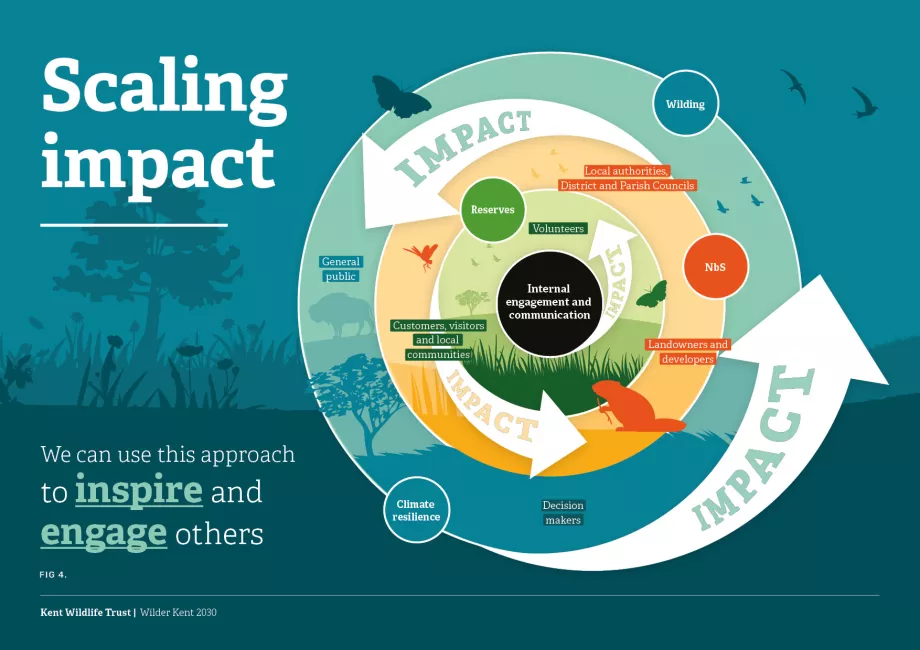
© Katy McCarten
Kent Wildlife Trust will continue to up our game.
We believe you can do the same by working with us.
Whether you are an individual, a business, a community or a decision-maker, we can deliver more together.
Nature supports people who support it. Without nature, we put everyone’s wellbeing at ever greater risk. Restoring it can future-proof society. Talk to us today about how we work to benefit people and wildlife.
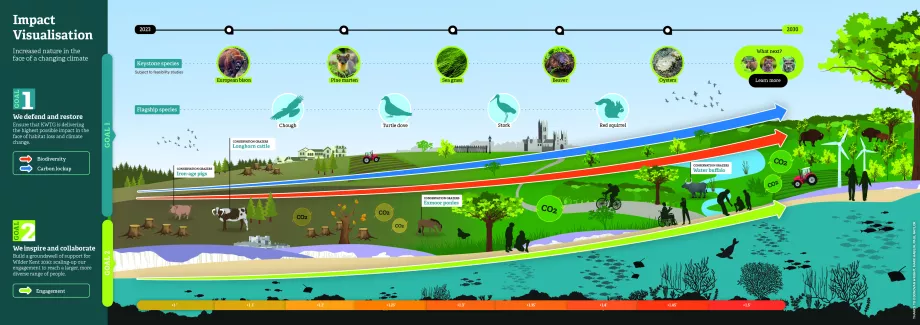
© Katy McCarten

Chalk streams are an ecologically significant freshwater habitat and are globally rare. England holds approximately 85% of the global total with the majority of those dotted around the south, including in Kent.
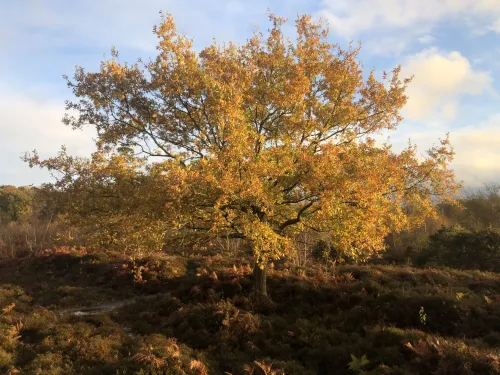
Asked to picture an ancient woodland, our minds conjure thickets of gnarled, towering trees where you could easily slip off the path and find yourself amongst the fellowship on the way to Mordor or perhaps come face to face with a witch. The truth is,…
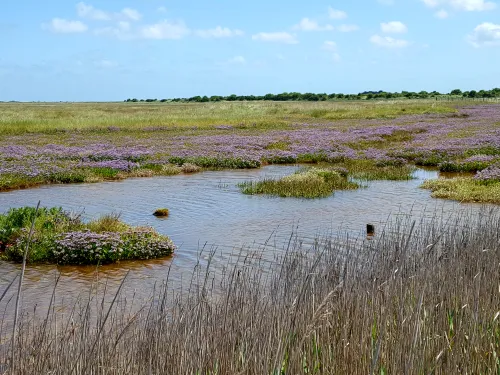
Teacher, campaigner, and member Kerry Sabin-Dawson talks all about her membership journey in this blog.